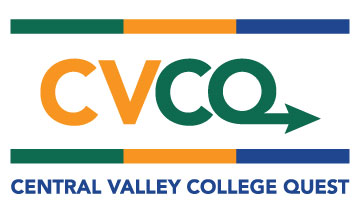alternatives to ‘college immediately after high school’
So for whatever reason, you are thinking that ‘straight-to-a-4-year’ may not be for you or perhaps for your child: perhaps confidence or maturity or focus is lacking, perhaps the student is simply suffering from ‘school burn out’ and wants a break to ‘do something else,’ perhaps there are finacial issues, perhaps his or her academic record or athletic development (or both) needs improvement, perhaps there are LD or spectrum issues that need be addressed first— whatever the reason, this is your section.
Over 1/3—and by some ways of counting up to 1/2— of all college students will transfer or in one way or another choose an ‘other than direct’ path from high school graduation through college graduation. Most people have heard of ‘taking a year off’ or of ‘the Junior year abroad’ but these are but two of the many alternatives to ‘4 straight’ that have developed, especially over the last 15 years.
There are many reasons for this change, some of them noble (and some not), some of them born of economic necessity (and some of conspicuous consumption) but most alternatives were born of the recognition that forcing everybody into the same educational box simply doesn’t work very well for either the student or the college. This section of my web page is dedicated to starting to help you sort out, and perhaps choose among, some of these options.
All colleges are the same…
… not !
Different Needs—Different Colleges
Maybe you are thinking that:
‘Pretty much all colleges are the same and pretty much all undergraduate education is the same… except as to quality… and I’m just not ready to go to college !’
…that is to say,
‘a B.A. is pretty much a B.A., and a B.S. is pretty much a B.S.— the only difference being that some come from more prestigious (and one assumes ‘better’) institutions, so if I (or my son or daughter) am not ( isn’t) ready for this generic ‘college’ there is no college possible right now for him or her.’
If so, the following list is for you.
What follows is a list of some 60 very very different colleges (in no particular order) that belie that assumption.
I’ve purposely left off some of the more obvious such as Brown with its ‘no university-wide graduation requirements’ as, in the event, it really isn’t nearly as different as most of these, of which some at least you might not have heard. And I’ve included some (such as Reed) that while they offer a very standard small liberal arts experience do so in such an idiosycratic way as to appeal only to a rare student… but then massively.
Google (any of) them and find out just how different ‘going to college’ can be. (PS: this list is certainly not meant to be exhaustive !).
List of Colleges
1) Reed (alt. College of Wooster): major capstones are not all that’s different
2) Evergreen State: utterly unique, makes everybody else’s understanding of ‘alternative’ look boringly predictable. Public honors
3) Hampshire: the alternative college of ‘The 5 College Consortium’
4) New (Florida): public honors, alternative
5) Marlboro: tiny, decidedly non-conformist, intellectual, townhall governance
6-11)* St John’s College (2), Shimer, Thomas Aquinas, Thomas More, Thomas Aquinas
12-18)* Berea, Warren Wilson, Sterling, Blackburn, College of the Ozarks, Alice Lloyd, Ecclesia
19) Unity: Maine, “hunters&huggers” gunlockers and Birkenstocks
20-25)* College of the Atlantic, Prescott, Northland, Green Mountain, Dickenson, Alaska Pacific
27) Deep Springs: you must look up
28-29)* Bard & Simon’s Rock: if everyone cared as much about doing college admissions right the we would all be better off.
30) MIIS:in CA,now ‘of Middlebury’:one of two simultananeous translation centers in US
31-33)* Harvey Mudd, FW Olin and Rose Hulman
34-36)* Colorado College, Cornell College (IA) and Quest (Canada)
37) Cooper Union ( fabulously hard to get into)
38) Curtis (ditto: think Stanford admission on steroids)
39-40)* Landmark, Beacon
41) Vandercook: there are conservatories… and then there is Vandercook
42-44)* University of Cincinnati, Dayton, Antioch ( the college, not the University)
45) Babson: all business, all the time
46) Naropa: along with Soka (and, to a lesser extent 55 below) where East meets West
47) Alverno: no grades, competancy based, Catholic women’s pre-professional emphasis– who knew?
48) The New School (NY) including Parsons, and Eugene Lang
49) Bennington: interdisciplinary, learn by doing… and Art as part of everything
50) St Mary’s (MD): public honors
51) Sarah Lawrence: cf Bard, Bennington, Hampshire… and Evergreen State
52) Vassar: avant-gard, fine arts& humanities… and diversity
53) Embry-Riddle: speciality engineering
54) Webb Institute: ditto
55) California Institute of Integral studies: Do the West… then do the rest.
56-57 Johnston Institute for Integrative studies (at U. of Redlands)& Fairhaven College of Interdisciplinary Studies (at W.Washington): so decidedly not the conservative/regular colleges that they exist as a part of; as ‘alt’ as the best.
58) Minerva: “Let’s take this college on the ROAD!” (in style)
59-60) Wabash, Mills: single sex but oh so different; Wabash= one a very few Men’s colleges left; Mills= very different from other women’s
61) The various (1 Fed, 6 state and one private) Maritime Academies
62-64)* Lawrence, Oberlin… and St Olaf
65) Deep Springs (yes, again… because it is the ‘most unique’)
*6-11=Great Books
12-18= Work Colleges (essentially free or relatively cheap, cf also 37 and 62)
20-25=EcoLeague
31-33=Interesting Engineering (see also 53 -54 and 61)
34-36=Block Classes
39-40= LD schools
42-44= Co-op colleges
59-60= Single sex
62-64=SLACs with major music; L&O with conservatories;St.O with no conservatory but as a whole college, even more musical than the others.
Different Needs—Different Colleges 2.0
Just to give you some idea of the differences you would discover in the above list, here is a sampling:
Landmark
Landmark and Beacon, but especially Landmark, offer an alternative 1-4 semester bridge to regular college for students either ‘on the spectrum’ or with LD issues or ADHD etc. getting in the way of optimal performance both in high school and in college. Landmark actually has its best success, according to them, with students who have been admitted to a regular college, gone and realized they need some more help if they are to best profit from their home institution (to which they often return) after 1-4 semesters at Landmark.
Simon’s Rock of Bard College
Simon’s Rock of Bard College is one of the relatively few ‘early college’ options for those ready to go to college in their sophomore year or junior year in high school. Bard offers different iterations of this early college theme, but this is the flagship program. 50% of students only go there for 2 years and then transfer to other schools but 4 years on site or a semi transfer to Bard’s main campus is also possible and used by many. It offers an interesting sort of halfway in HS halfway in college for that first year particularly for the perhaps academically more than ready but not socially ready student.
Co-op colleges
Co-op colleges such as Cincinnati, Antioch, Northeastern, Kettering, Purdue, CSUFresno, Georgia Tech, Drexel, Rochester, Florida Tech and Wentworth offer varying degrees of a sort of ongoing and integrated “All Gap, All the Time” with all sorts of internships and/or social volunteerism built into the core curriculum. These different schools all offer different blends but all require pretty heavy duty mandatory outside-of-the-college-proper work (for the most part paid) in one’s major for graduation.
The Work Colleges Consortium
The Work Colleges Consortium ( https://www.workcolleges.org/) take paid work a step further requiring students to work inside-of-the-institution for either tuition, room and board, both and/or cash, integrating work while in college into all aspects of college life. The result is (also) a very inexpensive college experience.
Summer Programs
There are a myriad of Summer Programs out there to enhance both your understanding of yourself and your college applications, some quite good. Here are but a few of the types of options available and that I can help you explore for your best options:
Internships
These might be paying or non-paying, formal or informal internships at local (or not so local) firms or agencies, that might concentrate on 1) earning money 2) learning a particular skill 3) becoming aware of what is entailed in working a particular profession or craft or 4) providing a particular service to the community… or any combination of the above. Try looking here : USNews Report
Travel
There are any number of programs ranging from 2-12 weeks touring foreign lands and from ones emphasizing culture, language, geographic awareness to those emphasizing adventure and/or social service and from academic to physical development… and any combination of the above. Just Google “summer travel for hs students” For a different take try looking here: Idealist.org
Athletic Development
From mini camps to touring teams to showcases opportunites abound in every state of the union at various colleges and prep schools and at various free-standing camps to train for specific sports as either a participant or a counselor (or both simultaneously!) or to learn the ropes of admission to and competing in Div I-III/NAIA athletic programs. Try looking here: Teenlink
Fine and Performance Arts
Again there are 2-12 week programs in many venues in this country and in many foreign countries at various colleges, prep schools and free-standing institutes that offer chances to train for specific arts from music, dance and theater, to ceramics and oil painting and on to bookbinding and blacksmithing and … the list goes on and on. Try looking here: Teenlink
Academic Enrichment
Again there are programs in most states of the union and in many foreign countries at various prep schools, colleges and universities that last from a less-than-a-week ‘boot camp’ to all summer and that offer chances either to repair a weak academic record or enhance a strong one with either extentions of classes already taken or entirely new subjects. Test Prep for SAT/ACT or UCLES/OCR is but the beginning of the offerings available which range not only from remedial English taken locally to well past AP physics at major US universities but also from British history taught on site to musicology in Vienna, kabuki in Kyoto or winemaking in Australia or Argentina. Try looking here: FastWeb Summer programs article
Gap Years…An Alternative to “Direct To College”
Gap years—a year between high school and college spent variously on internships, travel, service, personal growth— are becoming increasingly common especially for those who are looking for a chance to experience something of life outside of academe before they committ to four years in college and, if well planned, can be life changing; if not, they can be worse than a waste of time.
Gap years give students the opportunity to grow in so many ways: athletes can develop their skills, mature and/or repair academic deficiencies; fine artists can use them to develop portfolios; regular students can ‘Gap’ in order to explore new fields or dig deeper in a familiar one. But there are many other aditional uses.
In addition to these more obvious ‘school like’ uses, gap years can be spent in service or in devloping types of personal growth unlikely to be explored on a college campus. What follows are some examples of the cornucopia of opportunity available.
Third Party Gap year Programs
As one might expect when planning is paramount, there are a number of formal gap year providers and the best of these are likely to belong to The American Gap Association
https://www.americangap.org
Here is another site to get you started looking at third party gap year programs:
https://usagapyearfairs.org
These guys are in it for the money BUT they do provide some useful information:
https://www.find-a-great-college-for-you-fresno.com/summer-gap-pg-transfer/gap-years/
Do it Yourself
The site that is to be found at the end of this section is probably the best available for either creating your own Gap year— should you choose to go that direction— or exploring the various options with me or any other counselor. It should be a mandatory minimum reading for anyone thinking about Gapping as it carfully sets out the parameters of a sucessful Gap year, the options, the perils and the advantages.
But before you read that read this article from USN&WR. I’m not a big fan of that ex-magazine, but if the link at the end of this section is a good primer on the Gap year, the above is a nice intro to the whole field: https://www.nacacnet.org/studentinfo/articles/Pages/Gap-Year-.aspx
Post Graduate Years… not after college, after high school
For whatever reason, your senior year did not go… well… enough.
Perhaps it went well: everything was hitting on all cylinders, but you need more time with a specialty before you move on up to ‘the big leagues.’ This is a common occurance for athletes and other performance artists such as musicians or dancers. Often they just need, or feel they need, more physical maturity and/or training before attempting to compete at the next level.
If such ‘developmental’ needs are the only ones that need be satisfied then there are some particularized academies such as IMG https://www.imgacademy.com/ for sports or SCOPA https://www.socapa.org for the arts.
If, however, there are other and additional needs to be addressed such as academic enrichment and/or remediation, then perhaps one should consider a fifth year at a prep-school, one that indeed offers chances to develop one’s particular skill but also provides the opportunity to grow socially and academically as well.
Finding a good prep-school that offers PG years is somewhat… challenging…: there are a number that ‘offer’ which you do not want to attend as they are weak schools just looking for another reveue stream, and there are some very strong schools that purport not to offer such programs but informally actually do, especially abroad and on the East Coast. Here is a place to start…but only to start:
https://www.boardingschoolreview.com/pg_boarding_schools.php
I hesitate to say this, but this is one area in ‘after HS/beforeCollege’ that you will need—not just want but need—expert help.
Transfer & Deferral
You got in!
Yea!!
but…
…maybe something else other than college is calling… too:
FLEXIBLE CODE
….maybe a Gap year sounds like a necessary break right now; maybe service, maybe financial needs, maybe travel, maybe sports development, maybe a whole new and tempting academic/career direction or an in depth exploration of an already but tentatively chosen direction needs to be tried out first before you actually set foot on this campus… or maybe just ‘anything-but-college-in-3-months.’
Deferral, if your college allows, (and most do whether they feature it or not on their websites) may be your best option. It is not an option to be taken lightly or without a plan such as is discussed above in the “Gap years” tab. In fact, virtually everything that can be said about Deferral other than ‘find out your college’s attitude on Deferral’ is said in that tab: go there now… https://find-a-great-college-for-you-fresno.com/summer-gap-pg-transfer/gap-years/
except if…
… the reason you are seeking to Defer is that you didn’t get into your first choice college and want to try a redo on applications…but want to keep this college in your back pocket as a safety if that doesn’t work. If that is the case, you need a different college counselor: I find this use of Deferral unethical and will not assist anyone using deferral as a back-up plan.
If, on the other hand, you really are interested in trying out ‘a whole new and tempting academic/career direction’ first or feel the need to make a more ‘in depth exploration of an already, but tentatively, chosen’ direction in college, I’m more than interested in working with you.
In short, Deferral as a Mulligan? Not interested in helping; Deferral as a chance to explore? Very interested in helping.
Transfer… or “oops, reload!”
Here is where you start:
(https://www.nacacnet.org/research/research-data/Documents/TransferFactSheet.pdf)
No, don’t go on…
Now read this:
https://www.usnews.com/education/blogs/the-college-solution/2010/11/16/transfer-students-8-things-you-need-to-know
Nope, we’re not done: you’re a college student now…
…now this:
( AndrewFlagel.mp3 )
OK, now let’s talk…




